-
Underwater Hockey: International Scene
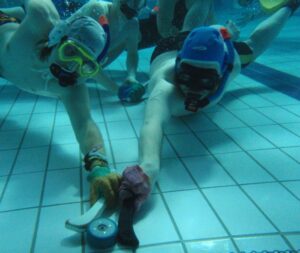
Image Courtsey: Wikipedia Underwater hockey, also known as Octopush, is a niche team sport modeled upon field hockey. It involves teams of players using snorkels, masks, fins, and small hockey sticks (that can pass for used appliances in a kitchen if not paid close attention) to play a form of hockey underwater at the bottom of a swimming pool. While it might not be as widely popular as mainstream sports, there are several countries where underwater hockey has gained a following. Here are some of the countries where the sport is relatively popular, along with details about the underwater hockey scene in each:
1. Australia: Australia is one of the pioneering countries in the sport of underwater hockey. The Australian Underwater Federation (AUF) is responsible for governing the sport in the country. The sport enjoys a strong following in various states and territories, with national championships and tournaments held regularly. Australia has produced competitive teams that have participated in international tournaments, showcasing the country’s dedication to the sport.
2. New Zealand: New Zealand is another country where underwater hockey has found a dedicated community. The New Zealand Underwater Hockey (NZUWH) organization oversees the sport in the country. Players of all ages and skill levels participate in regional and national competitions, with a strong emphasis on youth development. New Zealand’s teams often perform well in international competitions, which highlights the sport’s popularity and competitive spirit.
3. South Africa: Underwater hockey has gained a significant following in South Africa, with the South African Underwater Hockey Federation (SAUHF) governing the sport. The country has hosted various international tournaments, attracting players from around the world. South Africa’s teams have consistently been among the top contenders in international competitions, reflecting the country’s strong underwater hockey community.
4. United Kingdom: The United Kingdom has a growing underwater hockey scene, with multiple clubs and teams across the country. The British Octopush Association (BOA) oversees the sport in the UK. While the sport might not be as widespread as in some other countries, there is a passionate community of players who participate in national and international events.
5. Canada: Canada has a smaller but enthusiastic underwater hockey community. The Canadian Underwater Games Association (CUGA) is responsible for promoting and organizing the sport in the country. Players from various provinces participate in national championships and events. Canada’s teams have also taken part in international tournaments, contributing to the global underwater hockey scene.
6. United States: Underwater hockey has a presence in the United States, with teams and clubs scattered across different states. The sport is governed by the Underwater Society of America (USOA). While not as widespread as other sports, the underwater hockey community in the US remains active, participating in local and regional competitions.
7. France: France has a growing underwater hockey community, with clubs and teams spread across the country. The French Underwater Federation (FFESSM) oversees the sport in France. The sport has gained popularity in recent years, with players of various ages participating in regional and national tournaments.
8. Spain: Underwater hockey is also played in Spain, with the Spanish Federation of Underwater Activities (FEDAS) responsible for its governance. The sport has a dedicated following, and Spain’s teams have participated in international competitions, contributing to the global underwater hockey landscape.
While underwater hockey might not be as widely recognized as other sports, it has managed to gather passionate communities in various countries. These communities work hard to promote the sport, develop youth talent, and participate in international competitions, showcasing the unique and exciting nature of underwater hockey.
-
Clark Weeks’ Great Places for Scuba Diving
Clark Weeks loves scuba diving so we thought we would bring you some great places to go. Scuba diving is something that is on almost everyone’s bucket list, and it is an experience unlike any other. For those who have always wanted to go scuba diving and experience these stunning natural marvels, here is a list of the most unique scuba diving destinations in the world and what they offer.
Cape Kri-Raja Ampat (Indonesia)
The Cape Kri-Raja Ampat, located in Indonesia, is home to some of the richest marine life and coral gardens in the world. It has a record of 375 varieties of fishes. There are several diving resorts in the area, with Liveabord and Papua Diving Resort being a couple that you can check out to get started.
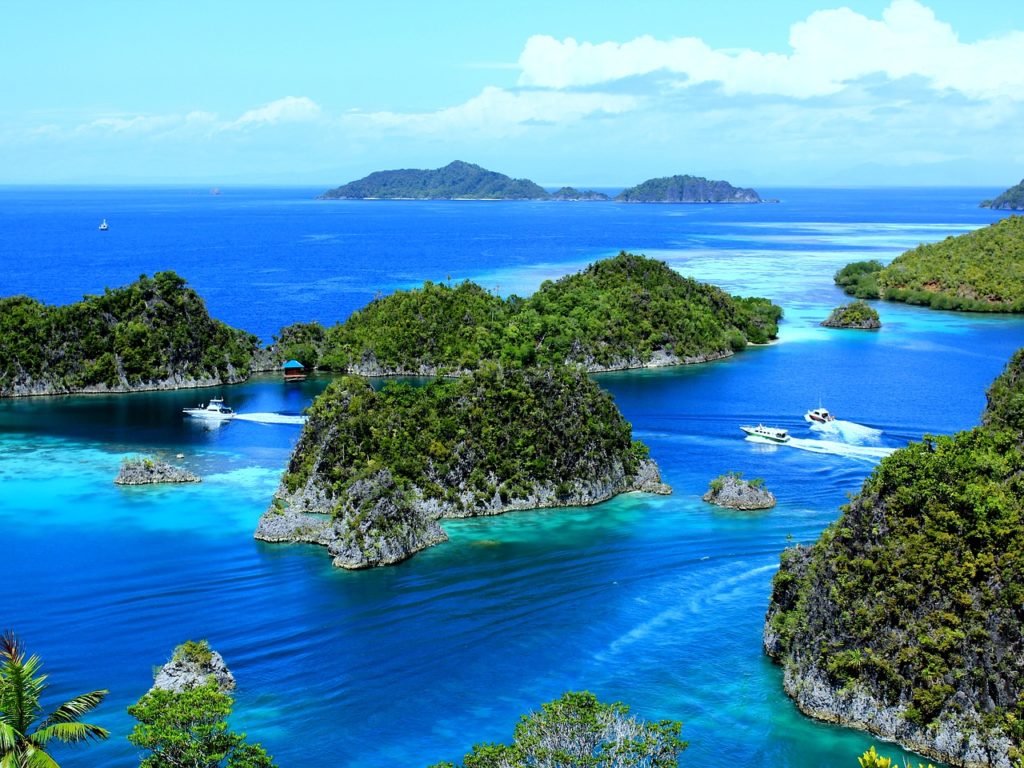
The beautiful Cape Kri-Raja Ampat in Indonesia Thistlegorm (Egyptian Red Sea)
For those looking to get a unique diving experience, Thistlegorm off the Egyptian Red Sea promises just that. It is a cargo shipwreck that gives divers a sight of train carriages, bikes, and trucks. These were sunk by 2 German bombers in 1941 and are at a depth of 29 meters. This is one of the few destinations that are famous for a night dive.
Liberty Wreck (Indonesia)
Yet another Indonesian diving site, this wreck is between a depth of 9 to 30m, so it has something for all skill levels. There is a lot of marine life here to see, and this is quite the picturesque dive. There is a slow current along with visibility of as much as 30 meters.
The Yongala (Australia)
Queensland in Australia houses a 109 meters wreck that has become quite the scuba diving spot. While entry inside the ship is not allowed since it is under protection from the Historic Shipwreck Act, there is still a lot to see here. It has everything ranging from wrecks to wildlife such as turtles, Manta Rays and even Bull Sharks.
Blue Corner (Micronesia)
Blue Corner in Palau, Micronesia is a dive made for only the experienced divers. There are strong currents in this area, so it is not advisable for the inexperienced divers. There is a good chance of spotting sharks here, but it also houses a large variety of other forms of marine life.
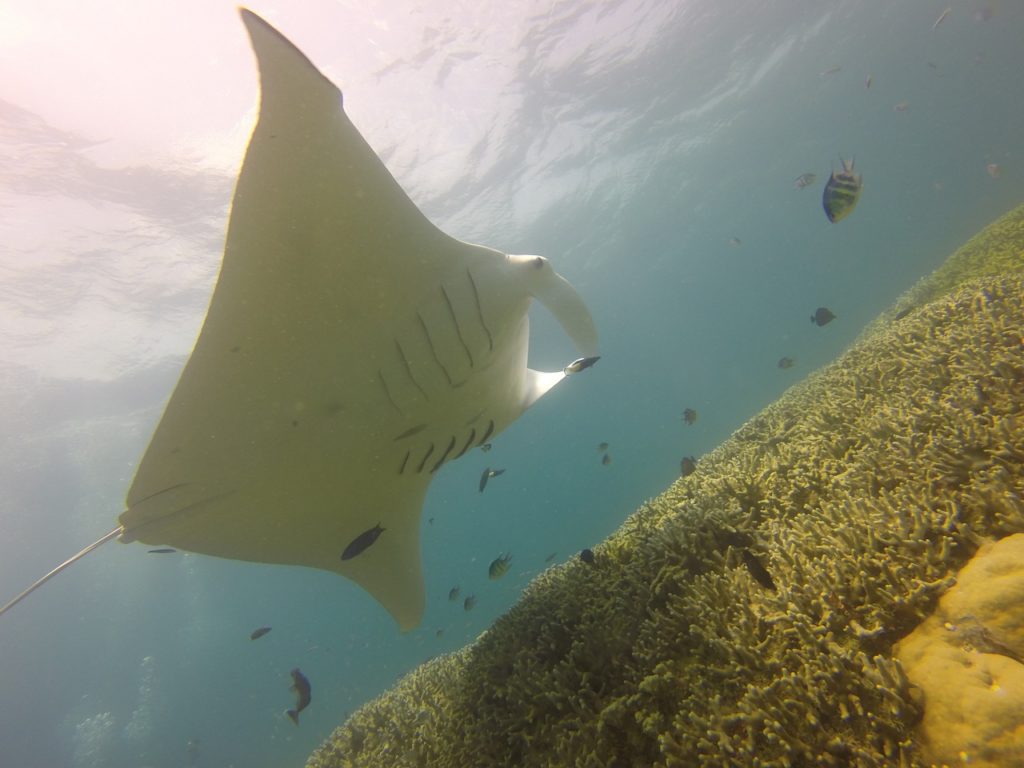
A fascinating Manta Ray sighted while scuba diving in Micronesia Manta Ray Night Dive (Hawaii)
This amazing night dive is quite the sight. With light rays on the floor of the ocean attracting plankton and Manta Rays, you can be sure of encountering some of the largest Manta Rays as well here. Currents are known to be tough at certain times, but it is an easy dive for even the inexperienced divers when the weather is good.
Great Blue Hole (Belize)
At 143metres of depth, the Great Blue Hole houses sharks and mako and is also one of the deepest dives in this list. The best time to go here is from April through June. The hole is full of coral reefs and the visibility in the water is very high to give you the perfect views.
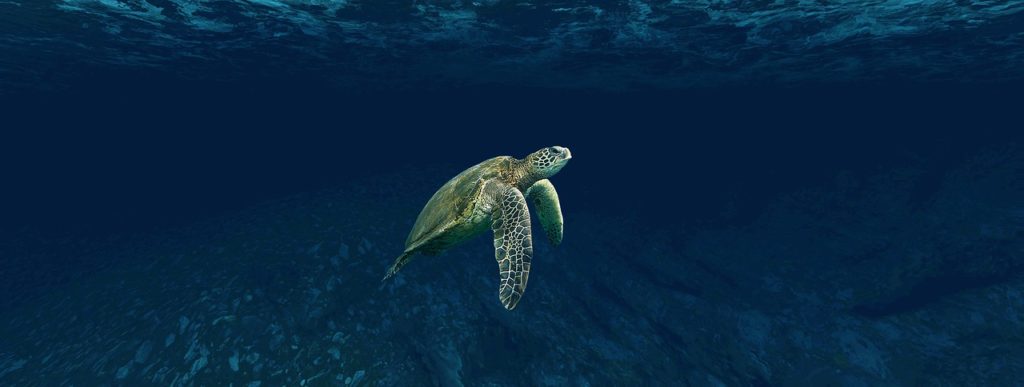
Turtle underwater in Belize Big Brother (Egyptian Red Sea)
Saving the best for last, the Big Brother comes with an eligibility criterion- you must have done over 50 open water dives to go here. It has unpredictable and very strong currents, and sharks are quite common here. With a steep volcanic cone dive, this sure is every scuba divers dream!
Say Hi to Clark Weeks While Scuba Diving if You See Him at One of These Sites
Clark Weeks has enjoyed scuba diving at some of these places and we hope you will enjoy them too. These are just some of the best scuba diving locations that you can go around the world. What are you waiting for? Grab your gear and go on to experience nature’s finest marvels under the sea.
-
Clark Weeks and Small Oil Wells
One of the investments that Clark Weeks likes are small oil wells. There are advantages over investing in the stocks of large oil corporations such as Exxon, Shell, BP and others.
There are also oil support companies like Halliburton, Baker Hughes, Schlumberger and many more but buying their stock has similar issues to the oil producers already mentioned. Because the oil market is fairly volatile, the stock price can be fairly volatile because oil prices can be fairly volatile. Then there is the danger of a major oil spill which increases the investment risk.

Stock prices in the oil sector can be fairly volatile If you like risk, you could always trade on the futures market buying options if you feel you have an inside track on where prices are going but that is very risky and not something that most advisors would recommend for their clients.
Clark Weeks Sees Benefits in Small Oil Wells
While someday we may move away from oil to renewable energy, that is a ways in the future. In the meantime oil will still be in demand.
Qualified Investors
These investments should only be for qualified investors who have the assets and income to handle the risk involved. This is not for the person looking to make a small investment or one looking for a low risk investment. However, there are ways to reduce the risk.
Oil Well Risk Reduction
There are several ways to approach drilling. One is known as exploration which is looking for new oil or gas fields. This is the riskiest strategy but can have a huge payoff. This is not the sort of investment that an expert like Clark Weeks or other advisors would recommend.
Then there is developing fields where you drill near proven reserves with the hope that they extend to where you are drilling. This is less risky but still not for most people.
Then there are income projects. This involves buying or leasing land over known oil or gas reserves. This, in a way, is more like buying a bond or an annuity although riskier. However, the returns are also usually higher and normally produce a steady stream of income.
Risk Control
The other issue is that you don’t have risk spread over many different locations. You are dealing with one or a few locations and can have much better understanding of the risks. For this type of investment there is nothing being done in extreme environments like the Arctic or deep undersea which greatly increases the costs and the risk.
Tax Deductions
One of the reasons that investing in the oil wells can be quite profitable are all the tax deductions. In some cases you can write off almost 80% of the investment in the first year. The government has set these tax rules up to encourage people to take the risk to drill for oil and gas. The tax code is used to create incentives for a number of activities so the federal government doesn’t have to directly invest itself in things it wants to happen. You could say that the tax breaks are indirect investments. This is also why people who push alternative energy say coal and oil are heavily subsidized.
Information and Data
Because you are dealing with one or a few locations, it is much easier to get data on production and costs and have a good idea of what the returns are likely to be.
Clark Weeks Recommends Small Oil Well Investments
For this reason, for the right investors, Clark Weeks and other advisors and industry experts recommend investments in small oil wells. It can be steady income and an excellent return.

An oil rig at work After note: The pandemic has unsettled markets to put it mildly. Do careful research and talk to your advisors about whether to invest at this time and also about your current investments if any.
-
Clark Weeks Loves Skiing Deer Valley Ski Resort and Park City, Utah
Surrounded by the Wasatch Range, Deer Valley is one of the finest alpine ski resorts in the region. As the title says, Clark Weeks loves skiing Deer Valley. Of all the ski resorts Clark Weeks has been to, this one is his favorite. Here are some of the reasons why.
Its proximity to Park City, Utah makes it that much more convenient to travel to. Deer Valley gained global prominence when it hosted the 2002 Winter Olympics.
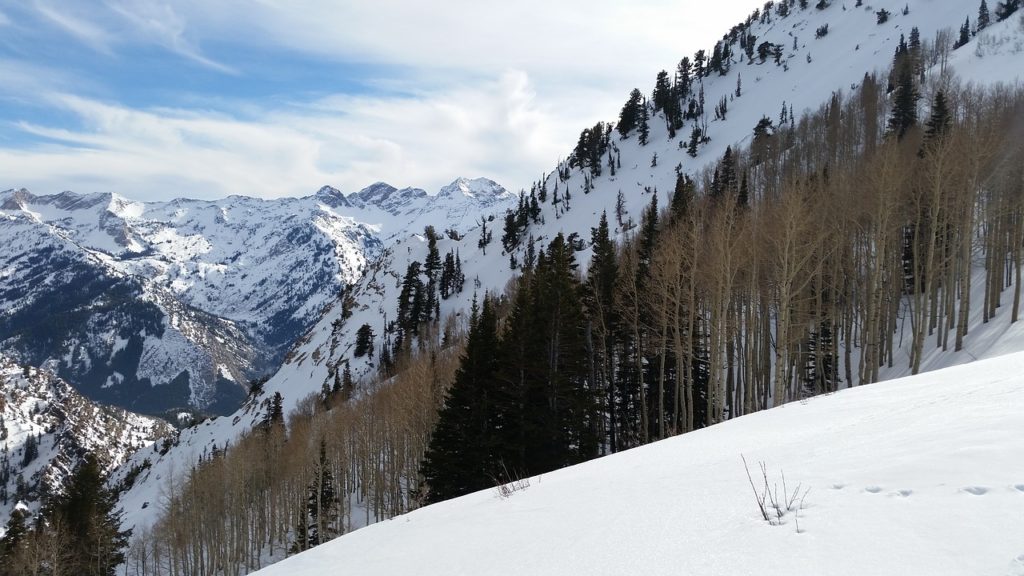
Clark Weeks Skiing in Deer Valley
Once again, in 2019, Deer Valley was awarded the prestigious title of the ‘Best Ski Resort’ in the United States consistently for the seventh year. In spite of the throngs of guests that come every year to Deer Valley, the resort destination is able to take care of them and everyone is bound to return satisfied. Apart from an excellent skiing experience, the valley offers some of the best food and hospitality services. You might bump into Clark Weeks in one of the many fine restaurants at the resort and in Park City. There is plenty to do even if you are not an avid skier. You can warm up in the evenings at one of the cozy lodges or enjoy fireside dining at a local restaurant.
Even before you reach the Deer Valley Resort you can taste a hint of the hospitality that awaits you. For instance, you need not drive all the way to the resort area. There is a free bus service available that can transport you. If you have more time, then you can spend a few more days and enjoy the experience of a full-fledged ski vacation.
Summertime in Deer Valley & Park City
Even though Deer Valley is essentially a ski resort, you will be pleasantly surprised if you plan a visit in the summer months. To begin with, it offers over 70 miles of trekking trails that you can explore on foot, horseback, or a bicycle. And, when you are hungry, the restaurants offer outdoor seating so you can enjoy one of the tastiest meals with a scrumptious view of the region.
In the absence of snow, water sports take a whole new meaning in the Park City region. You can do boating or kayaking in the Jordanelle Reservoir or the Provo River. Deer Valley’s Pebble Beach even offers paddleboard rentals. Any day of the year offers a perfect occasion to soak in the much-needed sunlight in this pure environment.
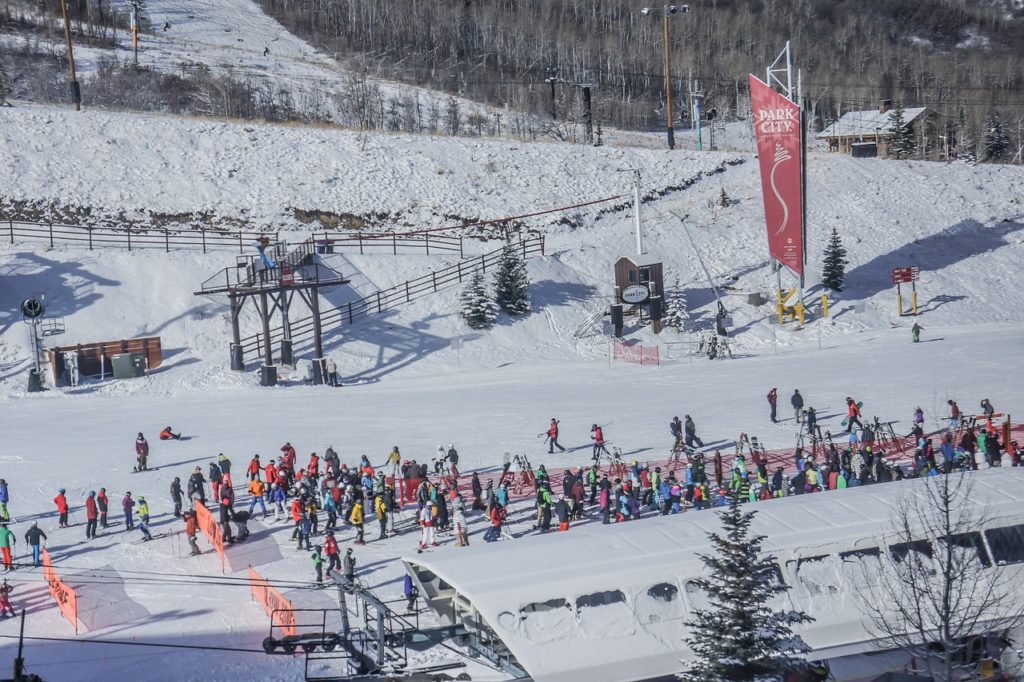
Things to Do in Park City
The historic site of Park City is set in between Deer Valley Resort and Park City Mountain Resort. Once a bustling silver mining town, the area has managed to retain its heritage and boasts of quaint boutiques, restaurants, and galleries. You can always head to the local museum that has preserved the bygone era and brings it to life through elaborate exhibits.
Park City also hosts one of the most significant film festivals – The Sundance Film Festival, every year in January, giving tourists another reason to visit this enchanting region. With tourism as its main business and attraction, Park City’s population is usually made up of more tourists than residents today. This is further boosted by the free intra-city transit service that is operated by Park City adding to the comfort of the tourists. These small things have made a big difference and ensured that the Park City region remains one of the most sought-after tourist destinations all over the world.
Hopefully, if you haven’t already, you will come and discover why Clark Weeks loves skiing in Deer Valley and the town of Park City so much. Click for more Clark Weeks interests.
-
Clark Weeks’ Specialty is Actuarial Services for Risk Reduction
Clark Weeks specializes in actuarial services and helping municipalities control their risk. Since he did not write this, we will have to check with him to see if we got the basics right.

What is it?
Actuaries are people whose job is to use data in a way that can best plan for financial risk relating to insurance and the financing profession. Anything that would potentially be paid out, be it through an insurance claim or via a pension is evaluated through concrete data. Companies will experience mortality, retirement, disability and other common claims and so the appointed actuaries determine these risks and uncertainties. Actuarial sciences are also applied to cases where life insurance is being assessed, to create a fair rate for the beneficiary based on health of the subject, as well as habits. It’s even used like data science to assess risky ventures a company could make in their investments or in what insurance policies they choose to hold.
When did it start?
Insurance itself came around in the late 17th century, when risk assessment became easier for people to understand and a lot more scientifically based. The very first cases of mortality tables were released by actuarial scientists at the end of the century, and served to divide the population into categories based on lifestyle and circumstances of said lifestyle. This made it easier for insurance brokers of the era to figure out how much risk they were taking with any new policy made. For example, you wouldn’t give the best life insurance rate to a man who was a known alcoholic and got into a lot of bar fights, because his risk of kidney failure or getting himself killed are actually quite high.
How it applies to business
Actuarial services relate to business primarily through insurance, and actuaries themselves typically work with insurance firms where their skills are put to the most effective use. There, they will apply an analysis of factors related to life expectancy and create mortality tables that measure the predictability of a scenario happening, and give their unique proposals to brokers. Not just for mortality and life insurance, but they also determine scenarios for other kinds of insurance, such as property and liability, even health and dental.
When applied to finance, it works a lot like data science does in business, but there’s a few key differences. They can apply analysis to predict the outcome of an investment, and are thus a strong presence in investment banks. A good actuary in the financial world will have acute knowledge of industries and potential investments.
How it differs from data science
As mentioned previously, actuary services are very similar to data science used in businesses. Both assess risk, value, and determine outcome and reward by taking those risks into account. However, actuaries work with more concrete data and almost exclusively for insurance or investment related numbers, typically having more accurate numbers based off of existing results rather than educated guesswork. Data scientists apply their work to a broader number of subjects, both structured and unstructured, and are not just limited to insurance. However, their numbers are used as a guideline for success rather than an assurance.
Actuaries will often use existing algorithms and place a conclusive number on their work, whereas data scientists are the ones to develop new software and algorithms, and their guesswork is geared towards variables that can’t have a fully determined outcome but aim to be more progressive. One of the biggest differences between the two professions though is that actuaries have an in-depth grasp of the financials and economic issues of the businesses they work with to create financial statements, while data scientists will not often use their skills to create statements.
Besides Clark Weeks providing Actuarial Services, you can find out about other interests here.
-
Underwater Hockey: A Clark Weeks Favorite
Background & History:
Underwater hockey originated in the UK in 1954. It was invented by one Mr. Alan Blake, co-founder of the South Sea Sub-Aqua Club. It was meant to keep the club patrons engaged during the winter months when the weather does not allow open-sea diving. It was given the interesting moniker of Octopush. From there it spread to other countries and is now played in at least 20 countries of the world. Clark Weeks discovered the sport and became not only a fan but an avid player. He plays on a national level on the senior tour.
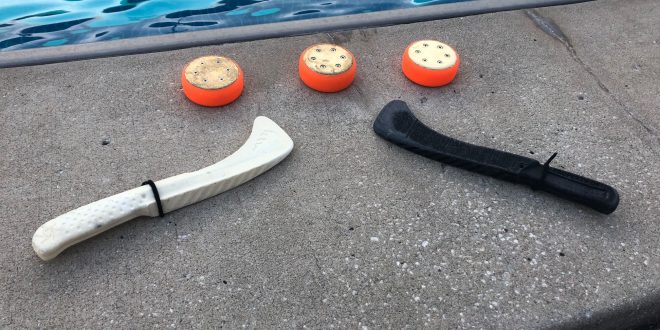
Pucks and Sticks used in Underwater Hockey (Photo courtesy of Harrison Smajovits) How Do You Play It?
The most important skill required to master this game is of course swimming. You must first be adept at swimming before you attempt playing it. The rules are fairly simple. Each team has six active members and four substitutes waiting on the poolside. As the game requires some intense efforts so the subs can be called at any time the active player deems fit. Each player wears basic gear, that includes a swimming costume, water polo head mask, snorkels, and gloves made of special latex. The game is played in a 25×15 meters swimming pool that is 2-4 meters deep. Each team tries to score a goal by moving a 3-pound puck in the opposing team’s goal. They use a spatula-shaped stick to move the puck. There are no goalies; the team uses maneuvers, formations, advances, and teamwork to score and defend.
Duration and Rules:
The match comprises two 15-minute halves and 3-minute halftime. A 60 second time-out is given to each team for each half. The game is managed by 3 referees. One is present in the pool and two watches the game from the poolside. Using your bare hand to move the puck is considered a foul. Similarly using your free hand is against the rules, moving the stick inappropriately, striking, intercepting, intentionally blocking the opposing player with the stick is against the rules too. Jumping on a player and calling a substitute player who has been awarded a penalty is also a foul. If a player is guilty of an intentional foul play, he can be given a suspension from the game that may last from 2-5 minutes.
Is Underwater Hockey an Extreme Sport?
Underwater hockey requires a great amount of stamina, swimming skill, strength, and agility on part of its players. You have to hold your breath underwater for a long time. On top of that, you also have to play your game and defend or score a goal. This game is for the perfectly able-bodied and healthy man. It is no surprise that the British Navy Seals were the ones who first invented and popularized this game. If you can endure the physicality of this sport then you will love it for it promises to provide thrills, fun, excitement, and pride for its players in literally every second of the game. Even the spectators have a gala time watching it.
Conclusion:
Underwater hockey is an adrenaline-pumping game that provides you fun and exercise in equal measure. It is gaining popularity by the day and young people are embracing the challenge it poses for its patrons. Clark Weeks hopes you enjoy it as much as he does.
-
The Serbian Orthodox Church Near Atlanta, GA
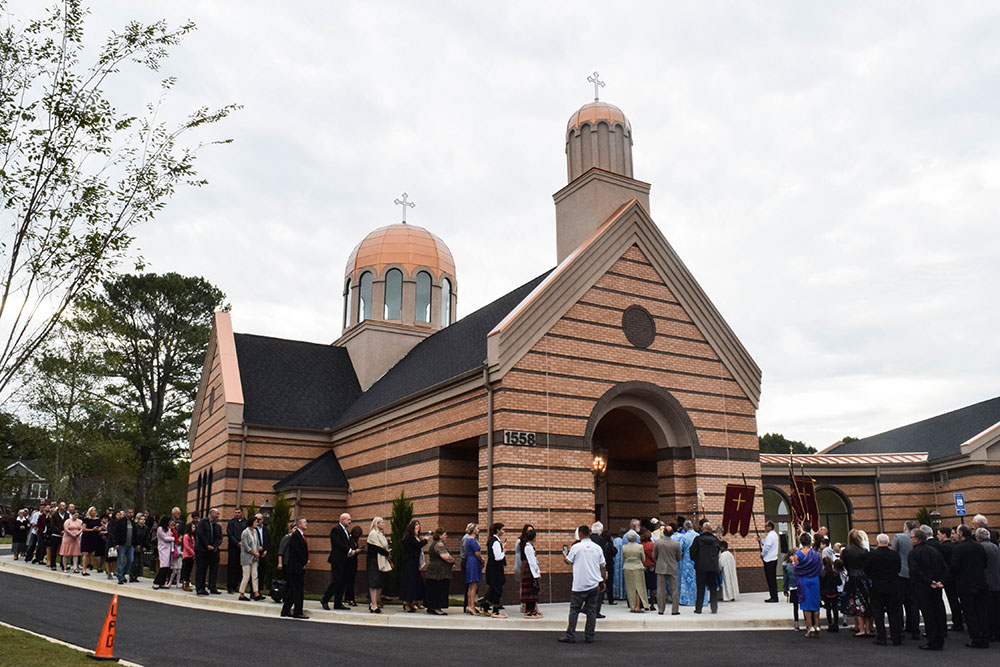
Photo from the website of the Sts. Peter and Paul Serbian Orthodox Church in Lilburn GA
http://www.atlantaserbs.com/Why is there an article about both Clark Weeks and the Serbian Orthodox Church in Atlanta Georgia? (Well, actually Lilburn, GA) Because his wife is of Serbian / Montnegrin origin and that is the church they attend. They have been very active in fundraising for the church and are very proud of it. Following is some history of the church.
Serbian Orthodox Church
The Serbian Orthodox Church is an autocephalous member of the Eastern Orthodox communion which comprises a major population in Serbia, Montenegro, and Bosnia and Herzegovina. The first Serbian Orthodox emigrants arrived in the Americas in the first half of the 19th century. The majority of these Serbs came from the Austrian empire, the Kingdom of Serbia, and Principality of Montenegro. Among these emigrants were Serbian Orthodox priests who established their first parish communities and had churches built by the end of the 19th century.
St. Peter and Paul Serbian Orthodox Church – Its History
Efforts at founding a parish in Georgia started back in 1985. This happened when His grace Bishop Christopher of the Eastern Diocese, during his flight to Florida, learned through conversing with a parish priest from New York that there were a few Serbs in the city of Atlanta. Bishop Christopher then met with David Simic’s son and a few other Serbs at a cathedral on Clermont Road. The chances of starting a Serbian community in the city of Atlanta and meeting the bishop hit the newspapers. Unfortunately, the idea of it did not become a reality.
Finally, A Beginning
However, a group of Serbs coming from Atlanta were still hopeful in establishing a parish. Finally, on the 2nd day of October in 1993, Saturday, His Grace Dr. Mitrofan officiated the service in Buckhead, in the home of a fellow Serb namely Mrs. Pamela Collins. This momentous event marked the start of a Serbian parish in the city of Atlanta, with Mrs. Pamela Collins having been elected the first president of the parish. Word was immediately sent to other Serbs in the city through a written notice, with news of the event and the first picnic. Over time, these written notices became the parish newspaper which, since then, is published once a month. They named the newspaper “Glasnik”. It was later shortened to “Glas” and is still the name of the newspaper to this day.
Hieromonk Fr. Nikodim
Things were beginning to take shape then, but the spiritual aspect was something the parish needed addressing. Hence, the liturgy was realized monthly by Hieromonk Fr. Nikodim. He was a parish priest in Orlando who served as an administrator to the new parish. Since Fr. Nikodim still had his parish in Orlando to look after, he only visits the new parish once a month, on a Friday afternoon. While staying with one of their parishioners, the priest would hold religion education classes for the adults on Friday nights. The parishioners always attended the classes. They were happy for having Fr. Nikodim, whom they thought of as an excellent lecturer and preacher. He also served the Divine Liturgy on Saturday mornings. Being naturally humble, he helped and guided the parish through its difficult times and encouraged the parishioners to be optimistic and have believe in God that their prayers will be answered. Sadly, Fr. Nikodim passed in 2008 in Johannesburg, South Africa.
A Permanent Priest
1997 was a significant year for the parish. In this year, the first permanent priest of Saints Peter and Paul mission church was appointed by the name of Fr. Milovan Katanic. It was also in this year that a decision was made to dedicate the missionary parish to the Holy Apostles Saints Peter and Paul, hence the name of the church. In July of the same year, they celebrated their first church Slava in the Holy Transfiguration Greek Orthodox Church in Marietta. The event was attended by Fr. Nikodim and Fr. Milovan Katanic who assisted His Grace Bishop Dr. Mitrofan in serving the Divine Liturgy.
Church Building Projects
Because the parish had no permanent place of their own where they could hold their services, one priority was to create a building fund and a building committee which aimed to purchase a property for the church, with an existing church or structure they could modify for their use. Because the goal was financial in nature, they had to look for ways to come up with enough money – organizing picnics and social events with the objective of raising money for the fund. The parishioners checked out several locations that were to their liking. However, some of these locations were too expensive or didn’t suit their needs.
First Permanent Location
Opportunity knocked in 2001 when the parishioners noticed that a former bank building in Lilburn was on sale for $283,000. Although the price wasn’t that affordable, being aware of the significance of the church, the parishioners stepped up and were able to collect a down payment in a short period of 75 days. Eventually, they became owners of the building, which was another turning point for the parish. The remaining loan for the building was fully paid in 2007.
Building the New, Current Church
On February 27, 2011, the Circle of Serbian Sisters and Mrs. Jovanka Loncaric, then parish president proposed the reestablishment of the building fund. Since the temporary church building on Beaver Ruin road needed extensive renovation, the new building committee was tasked to look for a suitable land where to construct the new church. In 2012, they purchased a new church property. By the next year, the parishioners focused on taking care of the new property and renovating the older house that was already there when they purchased the land. Funds for the renovations were collected through sports tournaments in basketball, soccer, and table tennis.
In 2015, a new Building Committee was elected, whose goal this time was to propose for future church construction and plans, hire architects and work on methods to fund the entire project. Clark Weeks helped the Serbian Orthodox Church by giving financial advice and helped raise funds. To increase the funds, the parish decided to sell the old property on Beaver Ruin road and add it to the new building project on the new property.
The construction of the new church began in July of 2017. The new church was completed on Jun 19, 2018, on the Feast of the St. Sisoes the Great. In October 13, a banquet was prepared in honor of the blessing of the new church, and the consecration began the following day. Over 900 people attended one of the most important dates in the parish’s history.
Besides Clark Weeks interest in the Serbian Orthodox Church in Lilburn near Atlanta, GA you see other topics here.
-
Welcome to Clark Weeks Wide Ranging Interests
This is a first post in a fun little blog about Clark Weeks varied interests. Everything ranging from actuarial science to skiing and scuba diving. We hope you enjoy the eclecticism of this blog.
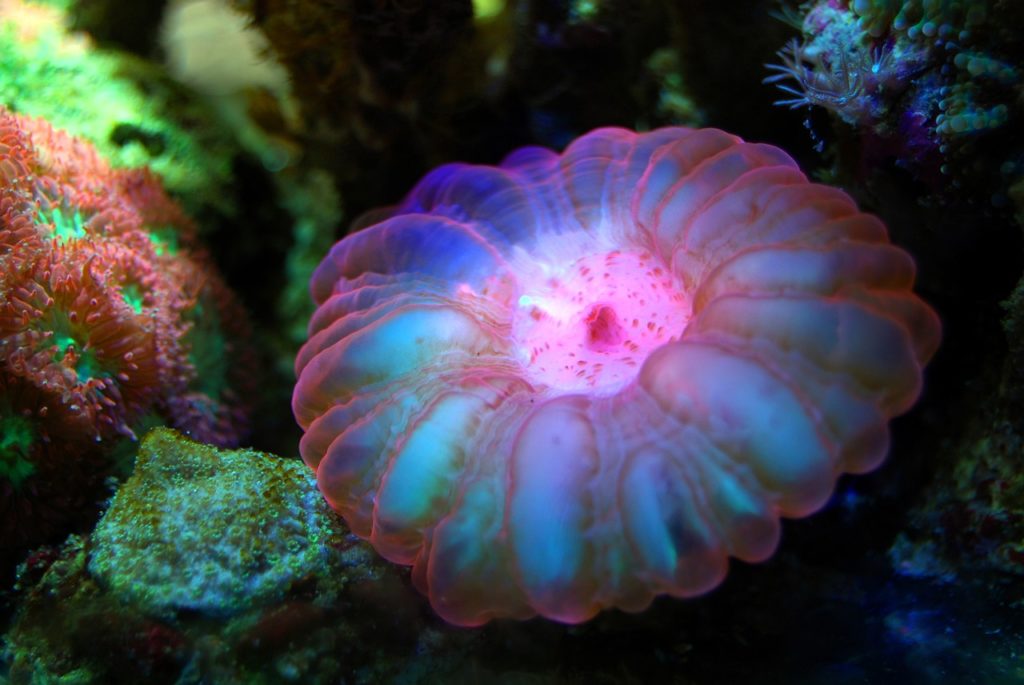
Scuba Diving
Clark Weeks has gone scuba diving in the Cook Islands in the Pacific. It is a remote place with spectacular reefs. Why? Because it is so remote, pollution and damage from humans is at a minimum. Coral bleaching from global warming could still hurt these amazing reefs.
Montenegro
Why Montenegro? Besides being a beautiful place, his wife’s family is from there. Which also ties into the Serbian Orthodox Church below. It is a fairly new country in a region that has seen a lot of flux over the last 100 years.
Underwater Hockey
Then there is underwater hockey. Clark Weeks plays on the USA National team in this sport. Never heard of underwater hockey? It is a sport that was invented by British military frogmen to stay in shape. It is played with a 12″ “hockey” stick that looks more like it would be good for spreading icing on a cake. Players have mask or goggles and fins and try to move a specially designed puck along the bottom of the pool to score a goal. Obviously, to play this game you need to get really good at holding your breath.
Actuarial Science
Then we can talk about actuarial science. This is basically the science of evaluating risk. It is obviously important to insurance companies but has other applications as well. Mr. Weeks works with municipalities and other organizations to help quantify and minimize their risk.

Oil Wells
Then there are also the varied investments the Mr. Weeks evaluates. One area that he looks it is investing in oil wells. This is obviously quite different than buying stock in Exxon or BP. There is potentially more risk, but if you know what you are doing, there is also a lot more reward than a simple dividend check and appreciation of the stock.
Serbian Orthodox Church
There is also the Serbian Orthodox church in the Atlanta area. Its name i the Saints Peter and Paul Serbian Orthodox Church. It is another of Clark Weeks varied interests. Mr. Weeks and his wife are actively involved with the church and help to fund raise for it.
Skiing
Besides the other sports mentioned, Mr. Weeks is also an avid skier. He particularly loves Deer Valley Resort in Park City, Utah.
We hope you enjoy this quirky little blog about Clark Weeks many interests. To find out more, go here.